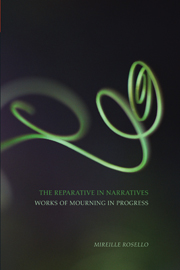Book contents
- Frontmatter
- Contents
- Acknowledgements
- Introduction: From the Debate on ‘Repentance’ to the Reparative in Memorial Narratives
- 1 Algerian Humour: ‘Jay Translating’ Words and Silences
- 2 René-Nicolas Ehni: Matricide and Deicide as Figures of Unforgivable Violence and Redemption during the Algerian War of Independence
- 3 The Truth of False Testimonies: False Brothers in Michael Haneke's Caché
- 4 Gisèle Halimi's Autobiographical and Legal Narratives: Doing to Trees what They Did to Me
- Conclusion: Repentance and Detective Fiction: Legal Powerlessness and the Power of Narratives
- Notes
- Bibliography
- Index
1 - Algerian Humour: ‘Jay Translating’ Words and Silences
- Frontmatter
- Contents
- Acknowledgements
- Introduction: From the Debate on ‘Repentance’ to the Reparative in Memorial Narratives
- 1 Algerian Humour: ‘Jay Translating’ Words and Silences
- 2 René-Nicolas Ehni: Matricide and Deicide as Figures of Unforgivable Violence and Redemption during the Algerian War of Independence
- 3 The Truth of False Testimonies: False Brothers in Michael Haneke's Caché
- 4 Gisèle Halimi's Autobiographical and Legal Narratives: Doing to Trees what They Did to Me
- Conclusion: Repentance and Detective Fiction: Legal Powerlessness and the Power of Narratives
- Notes
- Bibliography
- Index
Summary
The hero of this chapter is Fellag, a famous Algerian humorist, a ‘comic, clown, mime, and performance artist’ as Ruth Weiner calls him in her review of one of his shows (Weiner, 1999, 470). Fellag is a public speaker and a published author. He believes in the power of words and stories and in the inextricability of autobiography and politics. Fellag is originally from Kabylia and grew up during the war of independence. He started his career as a performer in Algiers, where his parents moved when he was a child (a first cultural and linguistic displacement), but he had to resign himself to exile in the middle of the 1990s, at a time when unspeakable violence made his country especially dangerous for public intellectuals and artists. For Fellag, tragedy was never set in another time or another place.
Yet there is one obvious difference between Fellag and all the writers analysed in the other chapters of this book. Humour, and a very specific form of verbal play, are his trademark. For Fellag, laughing is a strategy, the reparative energy that enables him both to confront the unbearable and offer his audience a way out of despair. But not just any kind of laughter will do. Fellag chooses very specific types of tactics that I propose to observe in this chapter. Exactly what type of humour is powerful against despair is one of the questions that Fellag grapples with.
- Type
- Chapter
- Information
- The Reparative in NarrativesWorks of Mourning in Progress, pp. 29 - 62Publisher: Liverpool University PressPrint publication year: 2010
- 1
- Cited by

